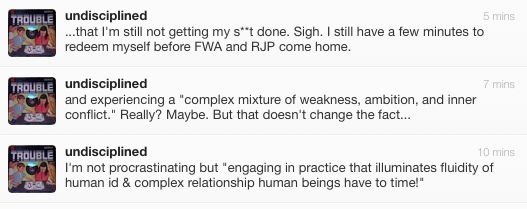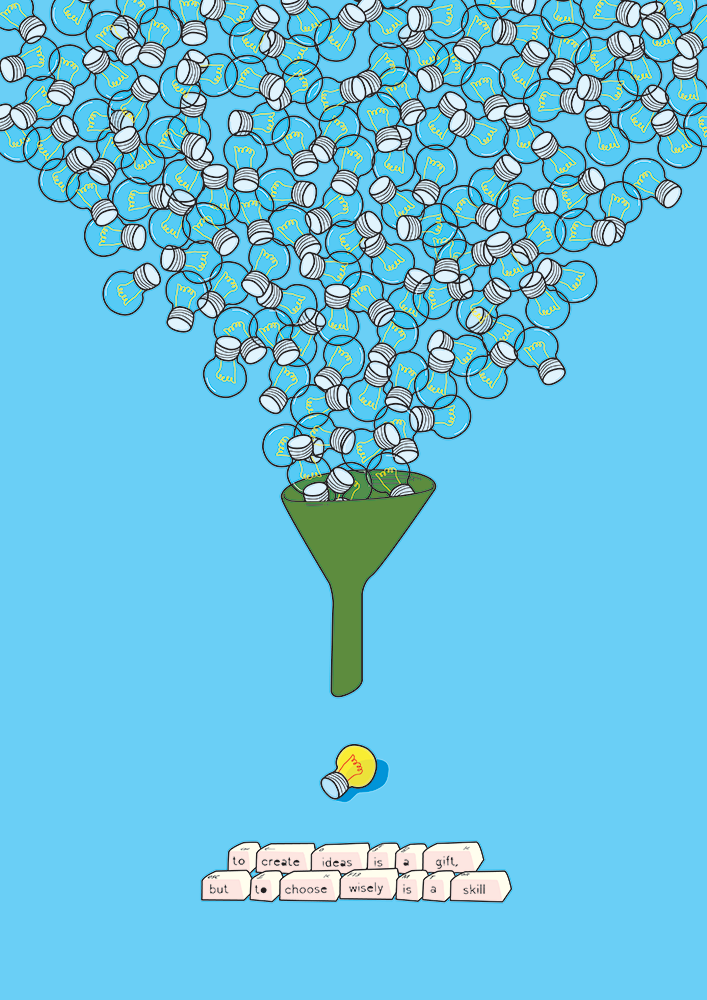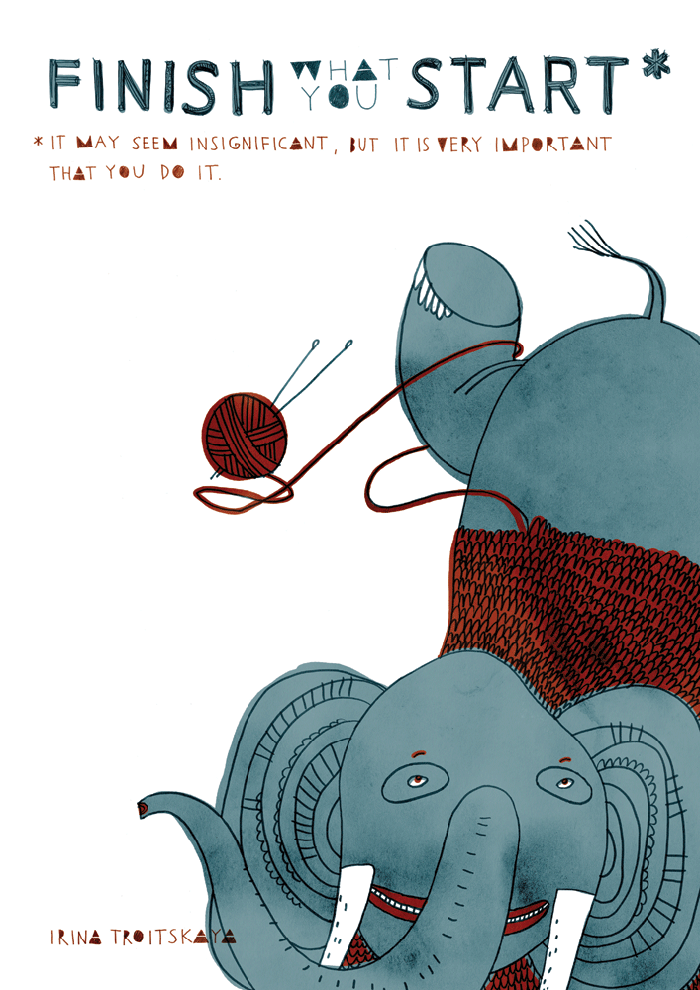It’s hot again today. Well, not as hot as yesterday. Today it is only 91, but feels like 95, at 10:30 AM. Still, without air conditioning it’s pretty hot in my house. Since I’m burning up, it seems like a good time to talk about academic burnout. In my last post, bad teaching, burnout and bell hooks, I hinted at possibly being burned out. But, what does that mean? How do you know if you are burned out? And what can you do about it?
Post Academic (which I found via the totally awesome Worst Professor Ever) writes about job burnout in their entry, Job Burnout: Do You Have it? Citing a 2006 New York Magazine article, they identify several key aspects of it. Here they are, with my responses*:
1. Working too much
Yes
2. Working in an unjust environment
Yes
3. Working with little social support
Yes
4. Working with little agency or control
Yes
5. Working in the service of values we loathe
Well, loathe seems a little strong. I would say, working in the service of values I often disagree with or that can come into conflict/at the expense of my own values is a better way to phrase it.
6. Working for insuficient reward, whether the currency is money, prestige, or positive feedback
Yes
*For now, I’m just giving my brief responses. I don’t think I’m ready to expand on what they mean…yet. In fact, I’m not even sure what they mean.
Hmmm…looks like I have burnout. The signs have been there for awhile. Check out this passage that I wrote in a comment on KCF’s post over at It’s Diablogical!:
There are all sorts of ways that we could discuss this question, but I am thinking particularly of my feminist debates class this past semester and our repeated discussions about feminist education. Early on in the semester (on this day), we read an excellent article by Joy Castro: On Becoming Educated. Castro is critical of the “trickle-down” theory of academic ideas/theories/knowledge and the inability of much academic work to ever reach audiences who need/hunger for it. She doesn’t want to reject academic knowledge, but to expand it (maybe include internet knowledge as academic knowledge and/or spread ideas cultivated in academic spaces across the interwebz?). Check out this passage:
The academy—as we fondly, misguidedly call it, as if it were some great, unified thing—is lumbering along amidst eviscerating budget cuts, pressures to corporatize, to streamline, to justify its existence to hostile anti-intellectual factions and a skeptical public, to become purely instrumental, a machine that grants job credentials to twenty-two-year-olds so they can get on with their lives. In the face of such intense and varied pressures, the academy must find ways to preserve itself as a place for thought to flourish—yet everyone needs to be invited to think. The discussion has to matter to everyone, and everyone’s voice must be heard.
I like this passage from Castro because it also reminds me how much I cherish critical thinking. I find that it can be hard to remember this when working in certain academic spaces; critical thinking is presented in such narrow ways and is often used to shut people out and to actually shut critical/creative thinking down. Personally, I feel that the pervasive attitude within the academic spaces that I inhabit is extremely damaging to my creative and intellectual spirit. While I have had some great experiences with many of my classes and exciting conversations with some colleagues, much of the “good stuff” seems to be in spite of the academy and not because of it.
I also wrote the following in a post on surviving the academic industrial complex:
When I first started writing the entry I was already feeling burnt out and disenchanted with the academy. Those feelings have greatly intensified over the course of the semester as I daily confront the limiting (and debilitating) logics of the academic industrial complex.
In their post, Post Academic links to a burnout test that you can take on the site, Stress Management. I scored very high. After taking the test I clicked on Recovering from Burnout. For those of you who don’t score quite as high as I did, you can click on How to Avoid Burnout. Here are the different ways that they suggest people cope with burnout:
- Do nothing
- Change career
- Change job
- Use burnout as trigger for personal growth
Notice how, “take a break,” isn’t listed as one the options. Apparently, once you hit burnout, summer vacation or the semester break just aren’t enough. Stress Management strongly favors the fourth option, devoting a huge portion of their article to understanding why we burn out and how we can move on and find new direction for our lives. As a teacher (and daughter of a devoted fan to the self-help genre), I must admit that I can appreciate the emphasis on critical self-reflection and the call to learn from our experiences. However, as a feminist who has spent a lot of time thinking about the limits and possibilities of individualized self-care, I am also troubled by these solutions, especially the language of “personal growth.” Ugh…too self-helpy for me (and neoliberal-y, but let’s leave the jargon out for now).
Note: I have self-help on the brain right now. Must write more about it soon. Personal growth? Makes me think of an exchange between Tony and Stephanie in
Saturday Night Fever:
Stephanie: Nobody knows how much I’m growing!
Tony: Why don’t you go on a diet?
But, seriously. While focusing on one’s own care and physical/spiritual/mental health are extremely important, analyzing the problem as an individual opportunity for growth can fail to address the larger structures that cause burnout in the first place, structures that may affect us in different ways, but that contribute to a more general academic culture that demands too much, values too little and excludes too many.
Here’s another passage from my post on surviving the academic industrial complex in which I talk about the dangers of making survival about our individual ability to cope:
In her article, which is part of a roundtable discussion on “Got Life? Finding Balance and Making Boundaries in the Academy,” Smith argues that our attempts at negotiating between academic and personal/activist lives require more than searching for ways to balance our various demands. Instead, we must ask why, as in: “Why has being a good scholar and academic come to mean that one should be working incessantly at the expense of doing social-justice work, having fun, or maintaining interests outside academia” (141)? And we must “deconstruct the logic of the academic industrial complex to see how it has trapped us into needlessly thinking we must choose between academia and having a life” (141). Yes! Finding a balance is not enough; the struggle to find that balance places the burden on individual academic laborers to adjust their lives while leaving the larger system that prioritizes academic production over personal/activist practices intact and untroubled. We need to interrogate why the academic system functions as it does and why it so often encourages (and demands) that we be unbalanced (and by unbalanced I mean an overemphasis on work over life and a dysfunctional approach to work/life that contributes to emotional/physical distress).
The academy is not paradise. But learning is a place where paradise can be created. The classroom, with all its limitations, remains a location of possibility. In that field of possibility we have the opportunity to labor for freedom, to demand of ourselves and our comrades, an openness of mind and heart that allows us to face reality even as we collectively imagine ways to move beyond boundaries to transgress (hooks 207).
Do I believe this? I hope so…





